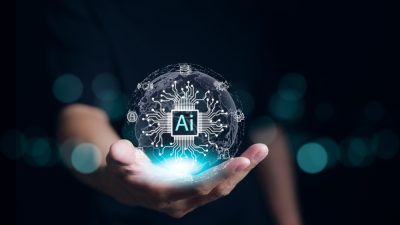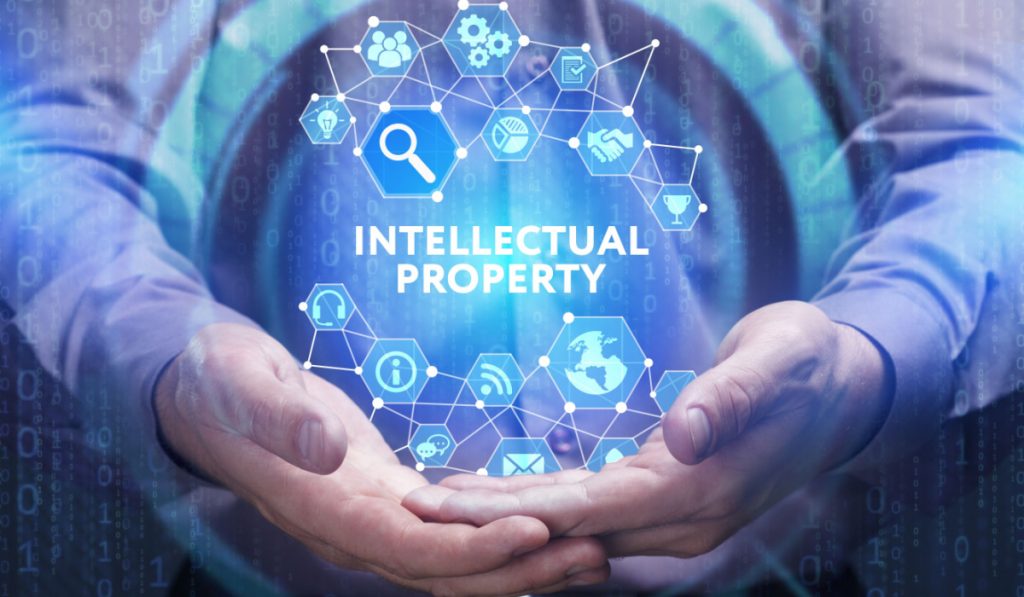Highlights:
- The technological advancements, intellectual property (IP) rights protect and encourage innovation and creativity.
- Businesses, investors and entrepreneurs working in the field of Artificial Intelligence (AI) should be conversant with the most important legal and ethical issues surrounding intellectual property protection – for newer developing forms of this technology.
Do Intellectual Property (IP) Strategies for AI startups sound all greek to you? Then you have arrived at the best possible page to dive into the IP for AI concept and research it further.
With emerging technologies, AI has raised many interesting and often profoundly unsettling fundamental ethical, social, moral, political and privacy issues. However, AI’s other concerns touch upon more practical patentability difficulties. The technological advancements, intellectual property (IP) safeguards promote innovation and creativity. Companies, investors and entrepreneurs should be mindful of the important intellectual property implications, regarding AI innovation.
However, the intriguing question that remains in the field of AI is whether the traditional types of intellectual property protections are sufficient or even befitting to protect an AI innovation and its by-products.
Dentons’ AI survey reported: that 58% believed that the user of the AI system should own the IP rights, while 20% believed the rights should go to the inventor of the AI system. Whereas, only 4% were of the opinion that the AI system itself should hold the rights.
The considerations below will be helpful for companies trying to understand the scope of opportunities to protect their AI innovations.
IP for AI – An Overview
Failure to evaluate and deploy IP as part of your AI business model is equivalent to failing to obtain the required building permits and insurance for your business firm’s facilities.
IP is crucial for the usage, protection and commercialization of AI and ML-based technology in four essential areas: training datasets, ML algorithms, software and output.
But, what is intellectual property (IP)?
Here is an answer to your query. Intellectual Property (IP) entails patents, trademarks, copyrights and industrial designs. Additionally, it includes trade secrets and private information. Intellectual Property can pertain to intangible assets such as inventions, trademarks, innovative technologies, source code and creative works!
Companies should define and protect their intellectual property through registrations and paperwork, particularly when collaborating with the third parties. However, in the domain of AI, regulatory protection has yet to keep pace with technological developments. This has made early and continuous IP portfolio management very crucial!
Daily IP activities might be time-consuming, but AI technology rights allow experts to focus on more strategic portfolio choices. Additionally, they improves accuracy while reducing the risk of IP insights and amp; information disappearing with the departing staff.
The blog highlights the intellectual property strategies for AI start-ups that will be useful for companies trying to understand the scope of opportunities to protect their AI innovation.
Key IP Considerations to Protect AI Innovations
The common question which is bound to arise in your mind is; can AI have intellectual property rights? Am I right? Then the answer to your question is ‘YES’!. Below are a few IP considerations to protect AI innovations.
Artificial Intelligence (AI) innovations are patentable
AI-based software is increasingly difficult to patent. However, with breakthrough struggles, patent offices have now established clear delineations of what is patentable and not patentable. Today, patentable AI software is seeking protection at remarkable rates.
In 2000, the U.S. Patent and Trademark Office (USPTO) had received about 10,000 applications directed to artificial intelligence, and by 2020, that number reached about 80,000 applications, of which 77% were approved.
USPTO has issued the eligibility guidance – giving an example of training a neural network. Patentable innovations may relate to an improvement in a particular model, an implementation of a model, improved training or other aspects.
Further, USPTO characterizes AI innovation as including the following: planning/control, knowledge processing, speech, AI hardware, evolutionary computation, natural language processing, machine learning and vision.
AI and inventorship considerations
AI technology may contribute to producing some patentable subject matter innovations, but U.S. law limits inventorship to “natural humans.” The court has ruled that AI agents that do not meet the concept of “natural beings” cannot be recognized as an inventor on a patent application.
In July 2021, South Africa became the first country in the world to give a patent to Artificial Intelligence (AI) rather than a person. Here are a few details on the same;
The South African Companies and Intellectual Property Commission issued a patent for a food container based on fractal geometry, created by “Device for Autonomous Bootstrapping of Unified Sentience” (DABUS). DABUS is an AI system designed by Stephen Thaler, a physicist from Missouri. Thaler is a pioneer in artificial intelligence and programming. His DABUS system is regarded as an autonomous, complex-functioning creative machine. The inventors filed the patent application in the United States, Europe, Australia and South Africa. All nations except South Africa declined!
AI may easily surpass human intellect in any number of subjects, and a typical AI’s proficiency in the arts, for example, could be considered superior to that of even the most educated human being. At such a high intellect criterion, it may be hard for a patent examiner to evaluate or even comprehend the new “ordinary degree of competence in the arts!”
Protecting your AI with a trade secret
Since AI systems are typically not adequately protected by a copyright or a patent, the AI algorithm may be protected as a trade secret. However, jurisdictional responses to trade secrets differ. Generally, the regulations regarding tortious conduct, privacy, secrecy and unfair competition apply to trade secrets.
Are you aware that preserving trade secrets leads to the “black box” problem and impedes data and technology exchange? As a result, combining trade secret protection with copyright and patent protection, as is often done with conventional software and associated innovations, may be the optimal course of action from the perspectives of both the policymakers and property holders.
Documents can be labeled secret or private and kept digitally and physically in safe locations. The security of the AI will benefit from practices like multi-factor authentication, mobile device management guidelines, data loss prevention methods and more.
Conventional contractual agreements may be obsolete
Typically, AI developers engage in arrangements with other companies to gain access to their data for training or deployment. A third party may possess some intellectual property rights, such as a trade secret or copyright, that safeguard a training dataset. Using the training data, the AI model modifies its weights or hyper parameters throughout training, resulting in a trained variation of the original. As the trained AI or its outputs may be arguably the result of the third party’s training data, the third party could be able to assert certain ownership rights.
The agreement should specify ownership and licensing distinctions between the training data, the AI model, the trained AI model and the output data. There are several variants on this issue; ambiguous laws regulating data ownership and AI software’s ability to introduce hidden vulnerabilities – are only two examples! Each organization utilizing, receiving or sending data should be informed of any applicable privacy restrictions that may apply to the data itself.
Conventional agreements intended for software or data are unlikely to clarify these limits adequately, and AI developers or data owners should evaluate them, likewise.
Countries That Have Begun to Discuss and Consider IP in Artificial Intelligence
In 2020, the United Kingdom concluded discussions on AI and IP. It encompassed patents, copyright and associated rights, designs, trademarks and trade secrets, in addition to the concerns that spanned beyond the IP rights.
On the other hand, Japan is actively debating how to enhance the patent system to make it more suitable for AI and technology. There, one of the subjects is compliance utilizing AI-related technology.
The National AI Initiative Act of 2020 of the United States has established a coordinated government initiative to accelerate AI research and applications, for economic and national security goals and has examined the problem of intellectual property protection in the context of fostering innovation.
The Way Forward: Integrating IP Considerations Into Strategy
As AI has become increasingly important to our business economy and work process creativity over time, entrepreneurs cannot afford to disregard IP rights. To avoid missing out on opportunities to attract capital, sell goods and to demonstrate innovation, AI-based firms should include IP considerations in their business strategies.
Four key considerations to keep in mind:
- Diverse IP protections for innovations of existing goods, future products and upgrades likely to be adopted by rivals must be carefully evaluated.
- Seek protection before divulging. It is worthwhile to submit an initial patent application to gain broad protection on key concepts.
- Evaluate inventions and IPR strategy at key stages regularly.
- Outline a thoughtful IP strategy consistent with the organization’s corporate goals.
In Conclusion
Because AI is more complicated than traditional software, it requires a different kind of intellectual property protection than what is already in place.
According to the AI poll conducted by Dentons, 86% of respondents agree that legislation is required to clarify IP protection in the context of AI, with 45% indicating that this is an urgent requirement.
Within the context of national or international law, the legal aspects of artificial intelligence are still the subject of theoretical debate. In the event of a dispute, the courts may reach a conclusion that differs from the contractual terms and conditions, and challenges and inconsistencies are likely to arise concerning AI systems and/or their products.
Since you run an AI company, you should assess the best way to protect AI and AI-created works in each region. The next step is to devise a strategy for safeguarding the intellectual property (and data) produced by your AI systems, combining various IP-rights tactics with contractual safeguards.





























































